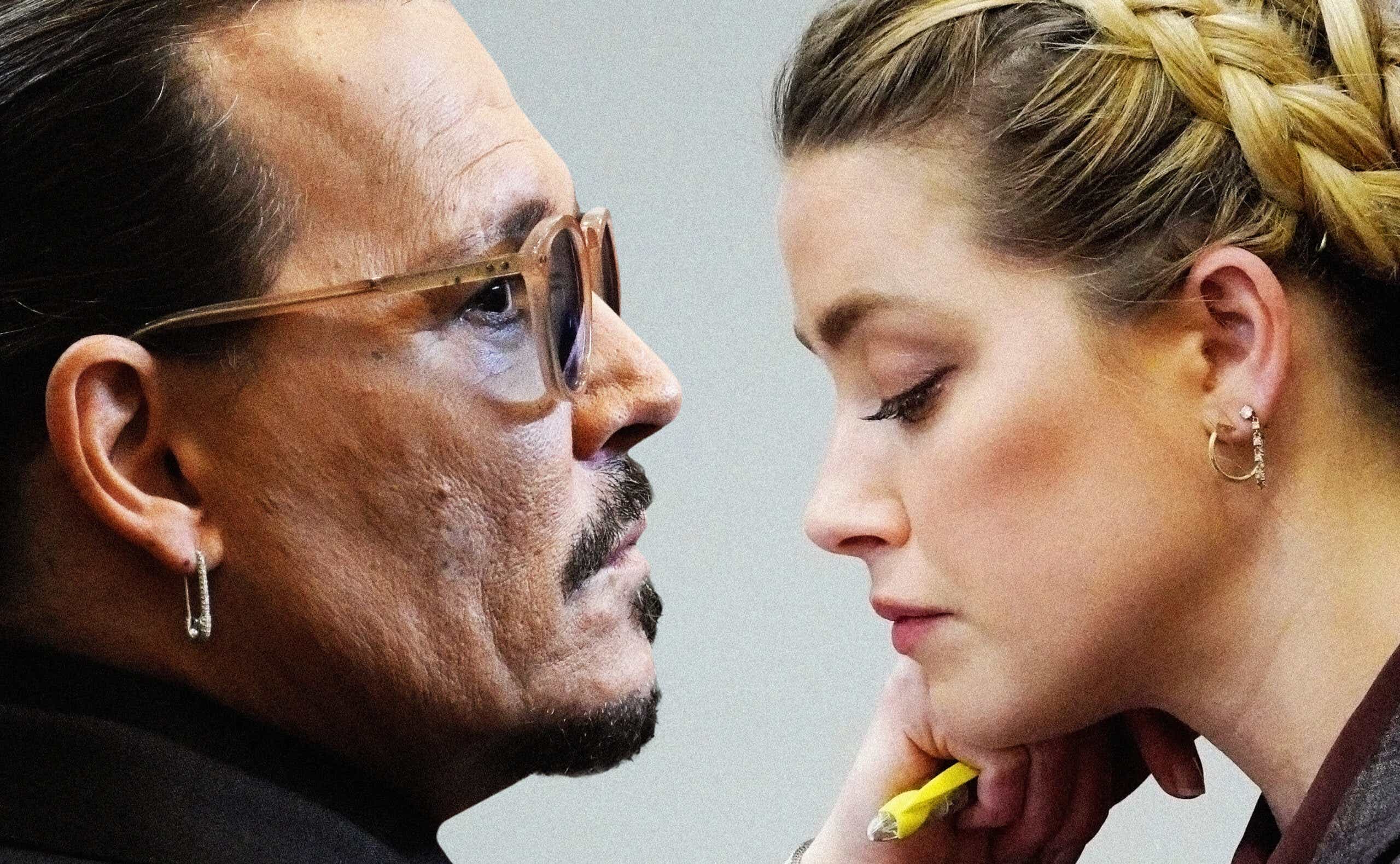The ongoing trial between Amber Heard and Johnny Depp has reached a level of such intense global obsession and scrutiny that you’d be forgiven for forgetting what, exactly, is at stake here, and for whom. And if you, like millions of others, have been following the trial closely along, it might feel like this daily, live-streamed event has been taking place for years, rather than just over a month — which is maybe why the expectations for the outcome of this trial are pretty skewed, at this point.
For example, if you scroll through Twitter and TikTok, you might read intense vitriol directed at Heard, with many people speculating jail time and other forms of legal punishment. That’s not even an option for how this trial could end. So as the internet continues to wage war over who abused who, and who deserves to “lose,” it might be helpful to read a primer of what the purpose of this trial is, and what an outcome might look like.
But by this point, you also need to face the facts about this case. Ashley Willcott is a former judge, a trial attorney, and a current anchor for Court TV. She spoke with KCM about the common misconceptions about this trial. She also explained why this trial is so significant, and how the jury’s conclusion in the trial could impact how future generations perceive and engage with domestic assault.
Remember that this is a civil trial, not a criminal trial
One thing to keep in mind this week is what type of trial this is, exactly.
“There is an important distinction between a criminal trial, which is when a person has been charged with a crime and potentially faces imprisonment, and a civil trial, which is when one party is against another, requesting damages, restitution, division of property, etc.” Judge Willcott explains. “This is a civil trial.”
This means that neither Depp nor Heard face jail time in this trial. They have sued and countersued one another for massive monetary damages. (Depp has sued Heard for $50 million, and Heard has countersued for $100 million.) So the jury is deciding who should pay whom, or whether the trial is inconclusive and no one should pay anyone anything.
“In a civil trial, a jury is looking for clear and convincing evidence in order to make a conviction,” Willcott says. “In this case, Depp is requesting that the jury find evidence that Heard falsely accused Depp of abuse in her Washington Post op-ed. He’s also arguing that this accusation negatively affected his career and earnings. On the other hand, Heard has countersued, requesting that the jury find Johnny Depp lied about her, and that it negatively affected her career and earnings.”
There might not be a clear “winner”
The jury will have to answer multiple questions. For that reason, there might be claims that Depp or Heard “won” or “lost,” but that might not be the full story. For example, it’s possible that the jury finds enough evidence to prove that Depp’s career suffered as a result of the Washington Post article, but not enough evidence that Heard’s domestic abuse allegations are false.
This is why it’s important to read from credible publications when the jury deliberation finishes, so that you can get the full story of what happened.
The court of public opinion will not impact the jury’s deliberation process — and if it does, that’s a problem
While the world waits for jury deliberations to end, it’s important to remember that the jury is not obliged to consider the court of public opinion when making their decision.
“One can never know what a jury will do,” Willcott warns. “I used to tell my private clients that only one thing is certain, and that is that what happens in court is always an unknown. The court of public opinion clearly supports Depp as the victim of domestic violence; but until that jury renders a decision, one cannot predict what they will find based on the evidence presented.”
It’s worth noting that if the jury is proven to have been swayed by online debates, this could result in a mistrial.
Willcott also points out that the jury’s conclusion doesn’t just have implications for the trial, but for how the world will look back on this trial in retrospect. “In my opinion, the general public’s perception of abuse will depend on the outcome of this trial,” Willcott says. “The positive angle of this trial is that it shines a light on domestic violence, and the understanding that anyone can be a victim, including a man. It is so critical to seek help if you are a victim of domestic violence, to understand the cycles of domestic violence, and to have compassion for victims of domestic violence.”









